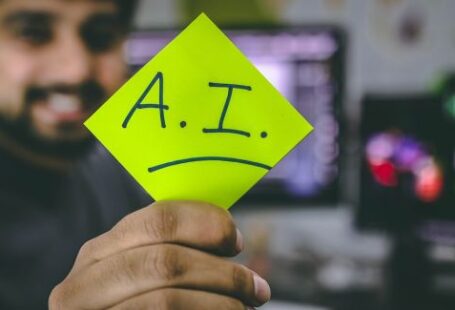The world is entering an era where artificial intelligence (AI) is becoming an integral part of our daily lives. From self-driving cars to virtual assistants, AI has the potential to revolutionize industries across the board. With advancements in machine learning and data analytics, businesses are harnessing the power of AI to drive innovation and stay ahead of the competition. In this article, we will explore how AI innovations are reshaping the future of industries.
Enhancing Efficiency and Productivity
One of the most significant impacts of AI on industries is its ability to enhance efficiency and productivity. With AI-powered automation, businesses can automate repetitive tasks, allowing employees to focus on more strategic and creative endeavors. For example, in the manufacturing sector, AI-driven robots can streamline production processes, leading to faster turnaround times and reduced costs.
Improving Decision-Making
AI technologies are also improving decision-making processes across industries. With the ability to analyze vast amounts of data in real-time, AI algorithms can provide valuable insights and predictions. In the financial sector, AI-powered systems can analyze market trends, identify investment opportunities, and even predict potential risks. This enables businesses to make informed decisions and mitigate potential losses.
Transforming Customer Experience
AI is transforming the way businesses interact with their customers. Chatbots and virtual assistants are becoming increasingly popular, providing instant and personalized customer support. These AI-powered systems can understand natural language, answer customer queries, and even make product recommendations based on individual preferences. By providing a seamless and personalized experience, businesses can build stronger customer relationships and increase customer satisfaction.
Revolutionizing Healthcare
In the healthcare industry, AI innovations are revolutionizing patient care. AI algorithms can analyze medical data, identify patterns, and make accurate diagnoses. This has the potential to improve patient outcomes and reduce medical errors. Additionally, AI-powered robots can assist in surgeries, enhancing precision and reducing the risk of complications. With AI, healthcare providers can deliver more efficient and effective care to patients.
Driving Innovation
AI is also driving innovation in various industries. With the ability to process and analyze vast amounts of data, AI algorithms can uncover hidden patterns and insights that humans may overlook. This opens up new possibilities for product development, process optimization, and business growth. For example, in the retail industry, AI-powered recommendation systems can analyze customer data to make personalized product suggestions, leading to increased sales and customer satisfaction.
Addressing Societal Challenges
AI innovations are not just limited to the business world; they also have the potential to address some of society’s most pressing challenges. From climate change to healthcare access, AI can be used to develop innovative solutions. For example, AI-powered sensors can monitor environmental conditions and help predict and prevent natural disasters. AI algorithms can also analyze healthcare data to identify disease outbreaks and develop effective prevention strategies.
Conclusion: Embracing the AI Revolution
As AI continues to advance, it is crucial for industries to embrace these innovations and adapt to the changing landscape. AI has the potential to reshape industries, enhancing efficiency, improving decision-making, and transforming customer experiences. By harnessing the power of AI, businesses can drive innovation, address societal challenges, and stay ahead in an increasingly competitive world. The future belongs to those who are willing to embrace the AI revolution and leverage its potential to reshape industries for the better.





